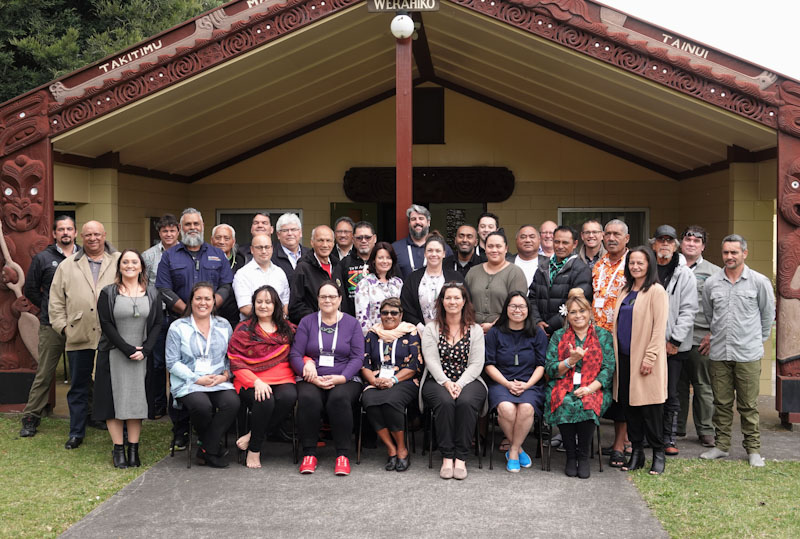Worldwide connections made at indigenous biosecurity hui
An International Indigenous Biosecurity Network will be established thanks to a hui taumata (conference) bringing together experts from around the globe.

In September around 75 delegates met at Paparoa Marae in Tauranga. They travelled from around Aotearoa, Fiji, Samoa, Australia, Hawaii, Canada and the United States.
The goal of the three-day hui taumata was to dicuss common aspirations, opportunities and struggles of indigenous communities in the biosecurity space.
BioHeritage project leader Alby Marsh (Plant & Food Research) says the taumata had three distinctive themes: whanaungatanga (origins); whakawhitiwhiti kōrero (the indigenous narrative of biosecurity); and nga whakaro hei whakanui i te mātauranga (indigenous solutions for a changing world).
“The first session explored the context of the indigenous worldview. We each introduced our ‘creation narrative’ to consider how our ‘origin’ has impacted and contributed to indigenous people’s work with the environment, our tribal communities and the relationships that have formed with external stakeholders and authorities.” says Alby.
The discussion explored how relationships amongst indigenous communities influence the decision makers who manage the natural environment. Participants also considered how indigeneity is central to regional and global discussions that aim to bring about conscious change to protect te taiao (the environment).
Alby says the attendees spent the second day sharing their experiences managing and protecting their native biodiversity .
“Central to this kōrero was the impact biosecurity incursions are having on indigenous people’s ability to interact with their environment. We discussed what has changed, and how people from different places are managing the incursions.”
On the final day of the taumata, facilitated workshops provided an opportunity to discuss solutions and opportunities that could support the delegates’ mahi (work).
Alby says “Part of the discussion was to consider successful and failed initiatives that influence the priorities of a network of indigenous biodiversity and biosecurity leads. These can inform the next steps that establish indigenous cohesion across global borders.”
As well as setting up the first International Indigenous Biosecurity Network, the group plan to publish a scientific paper that looks at indigenous knowledge and values from a biosecurity perspective.
The taumata was supported by Te Tira Whakamātaki, the French Embassy in New Zealand, and was part of BioHeritage Tranche 1 project Whakawātea riha rāwaho – Māori solutions to biosecurity threats and incursions to taonga species.
Posted November 2019